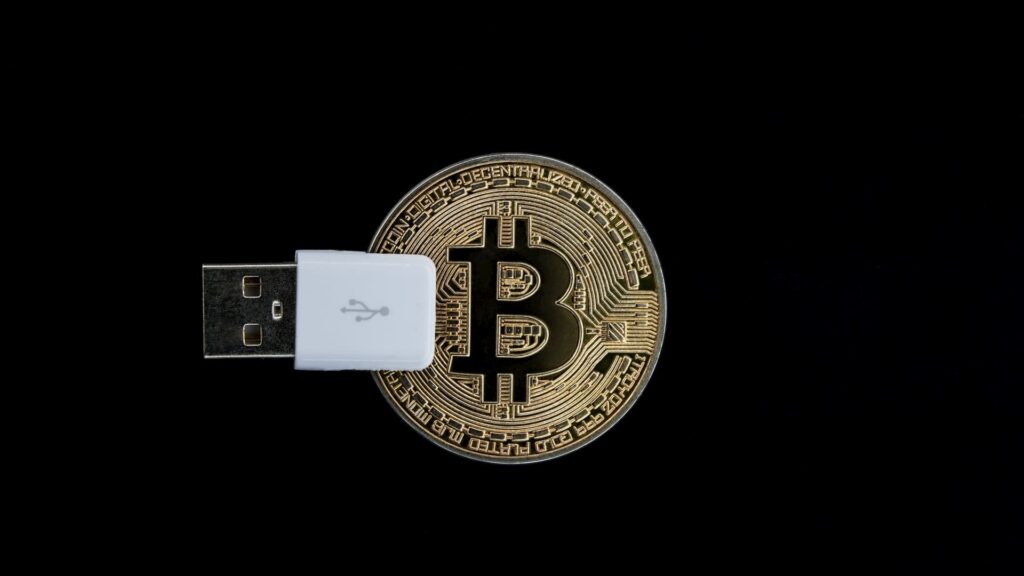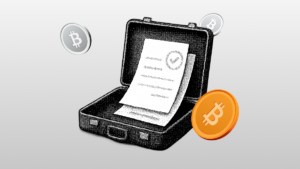
Bitcoin and other forms of cryptocurrency are known for their security. However, wherever there is value there will be people trying to steal it. Cryptocurrency is no different.
So, how do hackers try to get at your cryptocurrency and how can you protect it?
Using Common Sense
We’ll get into some specific methods that hackers use and specific things that you can do to stop them, in just a moment. First, a rule of thumb: just treat your cryptocurrency like anything else that you want to keep safe. Cryptocurrency is a new thing so it can be easy to not carry over common sense ideas.
Your crypto keys may seem like a thing of the future but they’re basically passwords. So, don’t just leave them lying around. If you have to have it written down, keep it somewhere safe. If possible, just commit it to memory. Also, don’t give your keys out.
You can also treat cold wallets like you treat your actual wallet. Keep it close to you when you need it with you. When you won’t need it with you, leave it at home.
How Different Kinds of Cryptocurrency Wallets Affect Your Privacy
One way in which cryptocurrency wallets aren’t like conventional wallets is that cryptocurrency wallets can be hacked. Actually, this is similar to conventional wallets with a rising fear of people stealing credit card numbers through cloth and leather wallets. So, you can start by knowing your crypto wallets.
Look at mobile wallets as like cloth or leather conventional wallets. They’re convenient. They’re cheap if you don’t already have one but you probably already do. However, they’re also not the safest thing. If you leave it somewhere or lose it, you’ve probably also lost a lot of your money.
Desktop wallets might be more like stuffing money in your mattress. It’s not convenient for you but it’s safer than carrying the money with you. However, it’s also not the most secure thing that you could do.
Hardware wallets are like the newfangled metal wallets that you can get to protect your credit cards. You probably don’t have one and they are more expensive. However, they offer maximum security and more convenience than other methods.
One final note on cryptocurrency wallets, getting back to their hackability. Don’t buy used hardware wallets. Some hackers will alter these devices or infect them with malware that will let them access your account once you start using the wallet.
Avoiding Email Phishing
Unfortunately, hackers can’t only gain access to your wallet by picking it up. That’s because all wallets, even hardware wallets, have virtual components.
Keeping wallets safe is a start. However, if you don’t keep your computers and mobile devices safe, hackers can still get in.
Because of the security of cryptocurrency, it’s usually easier for hackers to get into cryptocurrency accounts by attacking individual users.
Once again, you can avoid these scams just like you always have. Keep a good antivirus software. Many providers have add-ons so the same software you use to protect your computers can also protect your mobile devices. Even if you do have anti-virus software, be watchful of scams and don’t open suspicious emails or attachments. As people have become more aware of scams, people that you do business with are more likely to tell you ahead of time when they plan on sending emails or attachments. This can help you avoid content sent by scammers. If you get an email that you weren’t expecting from someone that you regularly do business with, call them and ask if they really sent it.
Typosquatting
Hackers might not even have to get into your computer to steal your information. They may have you come to them.
One internet scheme, called “typosquatting” sets up shady URLs similar to those of real website addresses. If someone types in the wrong address, they may be taken somewhere they don’t want to be. More than inconvenient, this could be dangerous.
One good way to avoid typosquatting is to always get to where you are going via a search engine, even if you know the URL. That way, if you hit a wrong key, you will still be directed to the real website.
Fake Social Media Accounts and Alerts
A similar method is that of using fake social media accounts and alerts.
Fake social media accounts work similarly to typosquatting. You click on what you think is the social media account of a person or organization and are unwittingly giving hackers a window into your computer.
Fake alerts work a little bit differently. These usually make you think that your crypto wallet has been hacked and ask that you input your key. When you input your key, you give it away to the hacker.
One way to get around this issue is to treat alerts like emails. Ignore alerts that are obviously fraudulent. If you get an alert that you think might be real, contact your provider directly and ask them to confirm that your wallet is compromised.
Unsecure Connections
Another way that hackers can get your info without getting into your computer is through public WiFi. This is the kind of WiFi that is available at public places like restaurants. Even if it requires a password to get in, you don’t know who has that password so you don’t know how secure that connection is. As a result, you should never use public WiFi to buy, sell, or otherwise move cryptocurrency.
This doesn’t mean that you always need to be at home when you use crypto. Hardware wallets can be securely plugged into devices. That is, provided that those devices aren’t linked to the public wifi. Most retailers will have two internet accounts – public wifi that you shouldn’t use, and a proprietary connection that you can.
If you have a mobile wallet you have another option. These days, data is very secure. It’s not as secure as a hardware connection but it is much more secure than wifi. If you need to make a transaction on the go, turn your wifi off, turn your data on and then make the transaction.
Cookies
A final way to protect your cryptocurrency wallets from hackers is to protect them from yourself. Shortcuts that you take on your own computer can be more dangerous than any high-tech hack.
Browser histories and cookies make things easy for you. They also make things easy for hackers who get their hands on your hardware.
Don’t let your computer save passwords or user names for crypto wallets or exchanges. Also, if you visit these sites in private browser modes, your computer won’t hold onto those cookies. That means that even if your computer or phone is lost or stolen, hackers won’t be able to access your wallets.
Some methods to protect your wallets can seem paranoid or over the edge. Others are just common sense things that you may not think of when dealing with new technology. However, doing everything to keep your crypto safe just makes sense. Treat it like you do your bank account and you should be okay.



